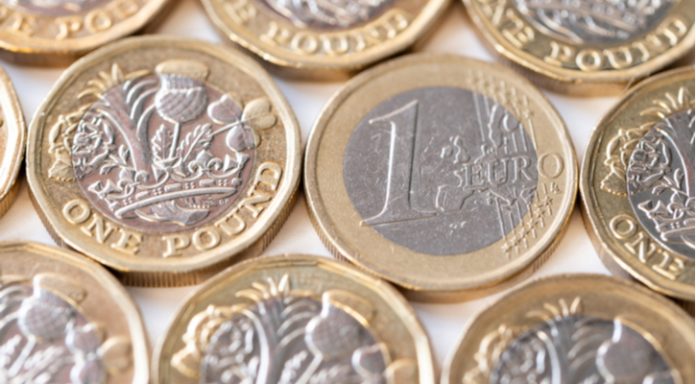- Pound (GBP) rises after two days of declines
- UK GDP unexpectedly rises
- Euro (EUR) gained after German inflation data confirmed 8.2%
- German PPI data due
The Pound Euro (GBP/EUR) exchange rate is rising on Thursday after two days of decline. The pair fell -0.19% in the previous session, settling at €1.1813, after trading in a range between €1.1805 – €1.1900. At 05:45 UTC, GBP/EUR trades +0.16% at €1.1831.
The pound slipped in the previous session despite surprising data revealing that the UK economy grew by 0.5% month on month in May, ahead of the 0% analysts had forecast. The unexpected growth came after two months of contraction, with the UK economy shrinking by -0.1% in March and -0.3% in April.
The growth was fuelled by a surge in travel bookings and a large rise in GP bookings, even as the cost of living crisis rages on. The stronger than expected growth will be news well received by the BoE. However, it doesn’t change the depressed outlook. The BoE expects the UK economy to contract in the second quarter of the year.
Looking ahead, there is no high impacting UK data. Instead, the pound could turn its attention back to the Conservative leadership contest, which has seen candidate numbers whittle down quickly. Ex-Chancellor of the Exchequer Rishi Sunak is the current favorite, although it is still early days.
The euro showed resilience in the previous session after German inflation data confirmed the earlier reading of 8.2%, adding pressure on the ECB to hike rates more aggressively. Industrial production data for the eurozone rose by more than expected in May, up 1.6% year on year, rebounding from -2.6% decline and well above the 0.2% forecast. However, this appears to be owing to a backlog of work, and weakness is expected for the coming months.
Today German wholesale inflation will be in focus. Investors will be looking for clues that inflation at factory level could be slowing. Expectations are for wholesale inflation to fall to 20.4% annually, down from 22.9%





